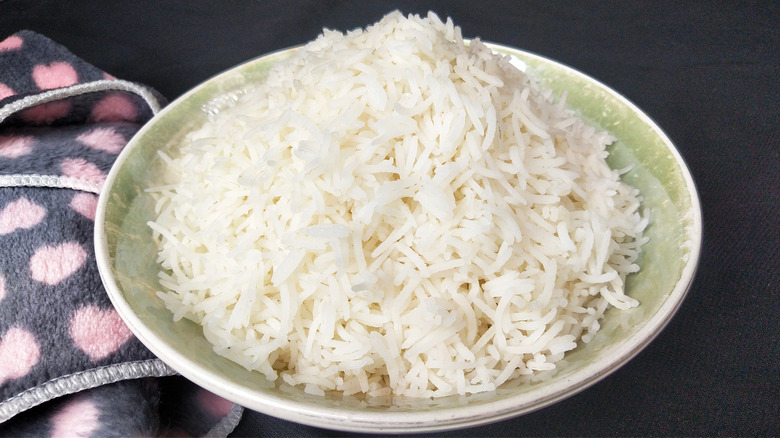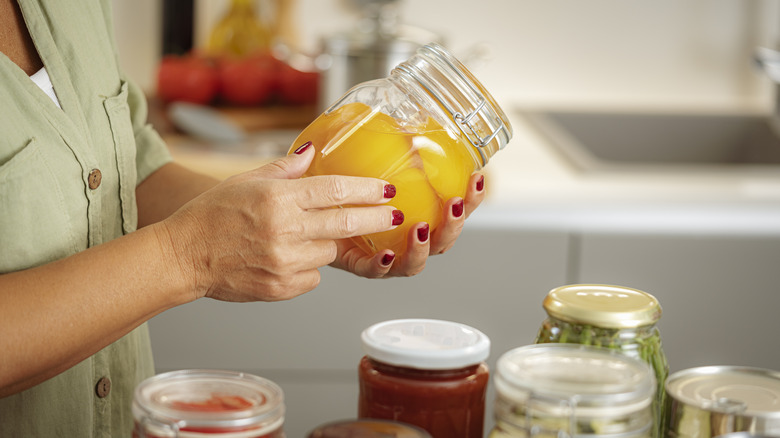Is It Actually Dangerous To Can Cooked Rice At Home?
Canning is a fantastic way to preserve food for the long term, but not all foods are suited for this method. Cooked rice happens to be one of them. There's a good reason you won't find canned cooked rice on grocery store shelves. Rice often contains a harmful bacterium known as Bacillus cereus, which multiplies quickly when left at room temperature. So, consuming leftover rice already carries risks, let alone attempting to can it for future use.
The environment that cooked rice creates inside the can doesn't help, either. When rice grains are cooked, their starch granules swell and soak up water, creating that thick, sticky texture we love when it's freshly hot. However, this very texture is not ideal when you want to can up the rice. It leads to trapped pockets of air and moisture, paving the way for mold and bacterial growth.
Starchy foods like rice also don't play nicely with canning in general. They're not the best heat conductors, especially when you put them side by side with meats and veggies. It's very hard for heat to fully penetrate the starch and reach the center of the can. So, the center may not be quite hot enough to kill off all the bacteria and sterilize the can's content. This could lead to a nasty case of food poisoning if you're not careful.
What other foods should you avoid canning?
Canning food can be dangerous, so it's good to be aware of what exactly you should avoid sealing up. As mentioned earlier, there are certain foods you should steer clear of when it comes to canning. Dairy products should not be canned, for instance, nor should eggs or oil. These rank among the riskiest items to can at home. Dairy's low acidity can foster the growth of harmful bacteria, and sealing eggs or herbs in oil can create an ideal environment for botulism, a toxic bacterial byproduct that can cause illness or death, to thrive.
When it comes to starch-rich ingredients like flour, pasta, and, of course, cooked rice, it's best to exercise caution. While there are tested recipes online that you can use to make decently safe-to-consume cans, there's still an element of risk involved. Lastly, low-acid vegetables, like broccoli, eggplant, and summer squash, should also be avoided.
You'll need a pressure canner to safely package these, since only in high pressure can you reach the necessary temperature to eliminate the risk of botulism with these foods. However, keep in mind that the high-pressure canning process will also cause the texture of these vegetables to deteriorate, making them very mushy. So, unless you really want to, it's probably best to avoid canning these veggies.

